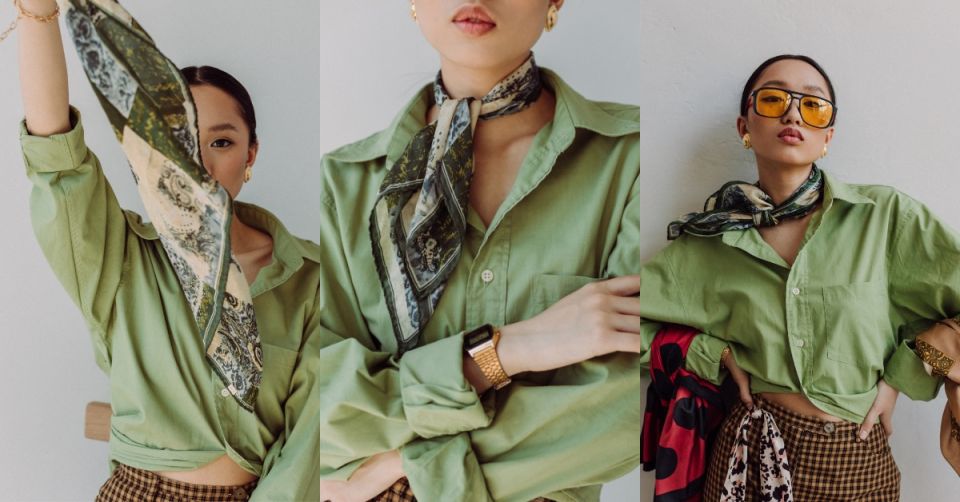Sustainable Fashion Careers: How to Break into the Eco-Friendly Fashion Space

The fashion industry has been undergoing a major transformation in recent years, with sustainability becoming a key focus for brands, designers, and consumers alike. As more people demand eco-friendly, ethical, and sustainable options, the world of fashion is changing—and with it, new career opportunities in sustainable fashion are emerging. If you’re passionate about fashion and the environment and want to be a part of this exciting shift, breaking into the eco-friendly fashion space might be the perfect next step in your career.
At u&i, we specialise in connecting talent with top fashion brands, including those that are leading the charge in sustainable design and production. In this blog, we’ll explore how to break into the sustainable fashion sector, the key skills you’ll need, and some tips for landing your dream job in the eco-fashion space.
Why Sustainable Fashion?
Sustainability has become a buzzword in many industries, but in fashion, it carries a sense of urgency. From fast fashion’s environmental impact to the increasing demand for transparency in supply chains, sustainability is reshaping how brands create, sell, and market their products. Consumers are more aware than ever of the environmental and ethical implications of their purchasing decisions, and brands are responding by prioritising sustainable practices, whether it’s using eco-friendly fabrics, reducing waste, or embracing circular fashion.
This shift towards sustainability in fashion means more job opportunities in areas such as ethical design, sustainable sourcing, waste management, and eco-conscious production processes. So, if you’re eager to make a meaningful impact on the fashion industry while also pursuing a fulfilling career, sustainable fashion might be the ideal space for you.
Key Areas in Sustainable Fashion
Breaking into the sustainable fashion world involves understanding the various areas where eco-friendly practices are being applied. Some key sectors within sustainable fashion include:
- Sustainable Design – This focuses on creating fashion with longevity in mind. Designers in this space use eco-friendly materials, such as organic cotton, hemp, or recycled fabrics, and design with durability, recyclability, and minimal waste as priorities.
- Ethical Manufacturing and Sourcing – Professionals in this area focus on ensuring that the production process adheres to fair labour practices, human rights standards, and environmental regulations. Sourcing materials that are responsibly produced is key here.
- Circular Fashion and Recycling – Circular fashion aims to minimise waste by creating garments that can be repaired, reused, or recycled. Designers, product developers, and engineers are increasingly working on technologies that allow for the recycling of fabrics, or designing clothes that can be returned to the manufacturer for repurposing.
- Sustainable Retail and Marketing – Retailers are increasingly focused on eco-friendly packaging, transparent supply chains, and marketing that educates consumers on the benefits of sustainable fashion. Professionals in this space work on promoting eco-friendly brands and making sustainability a key part of a brand’s identity.
Key Skills for Breaking into Sustainable Fashion
To succeed in the eco-friendly fashion space, certain skills and knowledge areas are crucial. Here are some of the most sought-after skills for sustainable fashion professionals:
- Knowledge of Sustainable Materials and Fabrics – Understanding which fabrics are the most eco-friendly is vital. This includes knowledge of organic fibres, biodegradable materials, and recycled textiles. Having expertise in sourcing and working with these materials can make you highly attractive to sustainable fashion brands.
- Tech-Savvy and Innovation – Technology is playing a big role in the sustainability of fashion. Knowledge of software like CLO 3D for designing virtual collections, or expertise in 3D printing, fabric recycling, or even blockchain for tracking sustainability data, can set you apart.
- Understanding of Ethical and Transparent Supply Chains – Employers in the sustainable fashion industry need professionals who can ensure their sourcing is ethical and their supply chains are transparent. Being familiar with certifications like Fair Trade and Global Organic Textile Standard (GOTS) can be beneficial.
- Upcycling and Repair Skills – With circular fashion becoming a focal point, skills in upcycling, mending, and garment repair are becoming increasingly valuable. These skills support the concept of prolonging the life of clothing, which is a key aspect of sustainable fashion.
How to Break into the Sustainable Fashion Space
Build a Portfolio Focused on Sustainability
If you’re a designer, create a portfolio that showcases your work with sustainable materials, eco-conscious design processes, and innovative approaches to reducing waste. If you're in marketing, retail, or another field, highlight your experience with sustainable campaigns or projects.
Stay Informed and Educated
The sustainable fashion space is changing quickly, so staying up-to-date with the latest trends, materials, and technologies is important. Consider taking courses or attending industry events to deepen your knowledge.
Network with Industry Professionals
Networking is always crucial in the fashion industry. Attend sustainability-focused events like Fashion Revolution Week, or engage with eco-conscious fashion brands on social media. Connecting with like-minded professionals can lead to job opportunities and collaborations.
Seek Out Internships or Freelance Work
If you’re new to the industry or looking to pivot, internships or freelance work with sustainable brands can be a great way to build experience. Many eco-conscious fashion companies are eager to bring on fresh talent passionate about their mission.
Final Thoughts
The eco-friendly fashion space is growing, and the demand for sustainability-focused talent is higher than ever. As a recruiter, we see the increasing need for professionals who are not only skilled but also committed to making a difference in the fashion industry. If you’re passionate about sustainability and want to contribute to a more ethical, eco-conscious fashion future, now is the perfect time to pursue a career in this exciting sector.
If you’re ready to take the next step in your sustainable fashion career, contact u&i today. We can help connect you with top brands in the fashion industry that align with your passion for sustainability.


